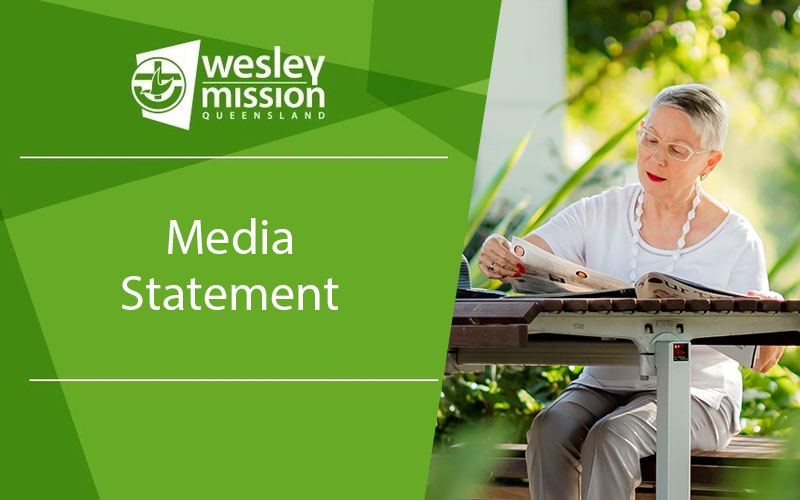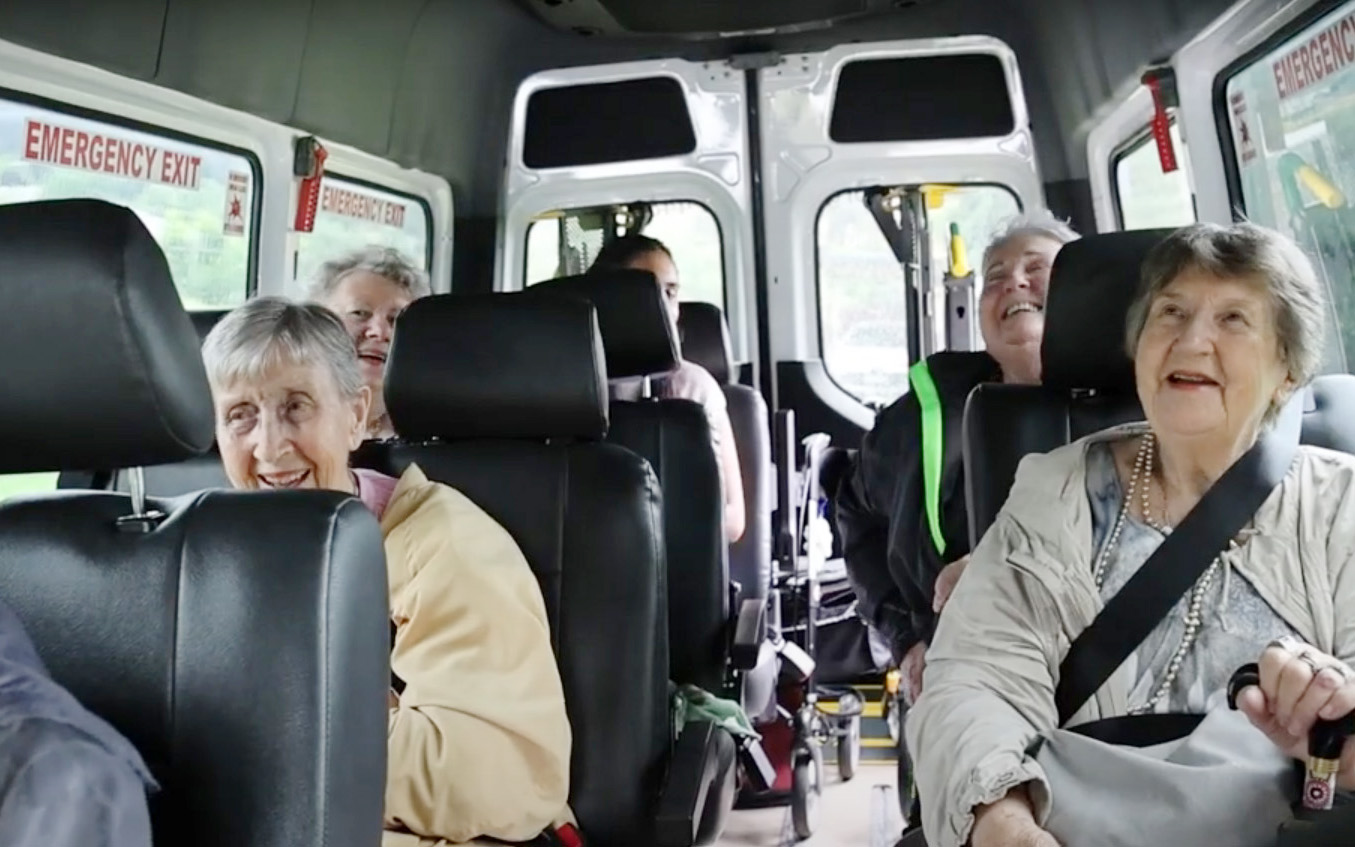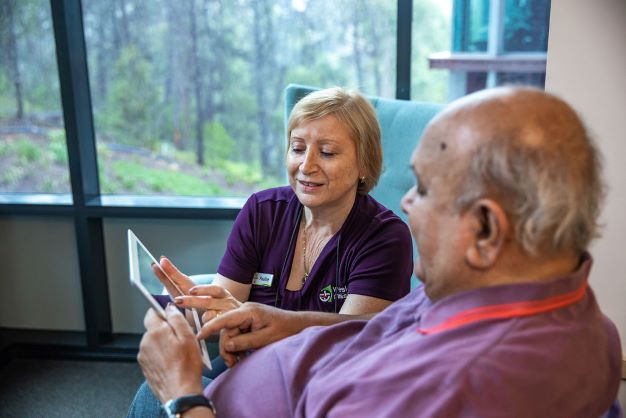Aged care assessment FAQs
We answer some of the most commonly asked questions about aged care assessments to help you prepare for this crucial step in accessing aged care services that best suit your specific circumstances.
Need quick Aged Care answers?
Call now 1800 448 448. Our warm and friendly Aged Care Specialists are waiting to chat with you. Don't wait, connect today!
Overview
ACAT stands for Aged Care Assessment Team. They have traditionally been a clinical evaluation to determine eligibility for government-funded aged care services. On 9 December 2024, all My Aged Care assessment (such as ACAT and RAS) transitioned into a Single Assessment System workforce as part of the Aged Care Reforms.
An aged care assessment is a clinical evaluation to determine eligibility for government-funded aged care services, such as residential aged care, support at home care, respite care, or transition care. This comprehensive assessment, conducted by a team of healthcare professionals, covers a wide range of areas, including the person's health status, medication management, ability to perform daily tasks, cognitive function, social support, and living environment. After the assessment, the person will receive a detailed report outlining their care needs and recommendations for the most appropriate aged care funding and services. Learn more on our Aged Care Assessment page.
The purpose of an aged care assessment is to comprehensively evaluate an individual's care needs and determine their eligibility for government-funded aged care services in Australia. The assessment is person-centred, taking into account their health conditions, mobility, daily living activities, and support requirements. It aims to ensure that individuals receive the most appropriate and tailored care based on their assessed needs, whether it be through Home Care Packages, residential aged care, respite care, or other aged care programs. By identifying the level of care needed, the assessment helps individuals access the right services and support to maintain their independence, improve their well-being, and enhance their quality of life during their aging journey.
On 9 December 2024, all My Aged Care assessment (such as ACAT and RAS) transitioned into a Single Assessment System workforce.
The role of the aged care assessment team is to assess individuals' care needs and determine their eligibility for government-funded aged care services. Assessments play a crucial role in ensuring individuals receive appropriate care and support based on their assessed requirements. On 9 December 2024, all My Aged Care assessment (such as ACAT and RAS) transitioned into a Single Assessment System workforce.
To request an aged care assessment, contact My Aged Care on 1800 200 422. They will guide you through the process and, if eligible, they will refer your request to your local assessment organisation . If you prefer to request it online, visit My Aged Care’s Assessment Application tool. It takes approximately 15–20 minutes to complete. Alternatively, your social worker, doctor, or other health professionals can organise this for you on your behalf. On 9 December 2024, all My Aged Care assessment (such as ACAT and RAS) transitioned into a Single Assessment System workforce.
Yes, an aged care assessment is mandatory to access government-funded aged care services in Australia, such as such as residential aged care, home care packages, respite care, or transition care. The assessment determines your care needs and eligibility. For privately funded arrangements, the need for an assessment may not be mandatory. It is advisable to consult with aged care providers or relevant professionals to understand the specific requirements and recommendations based on your specific needs and goals.
On 9 December 2024, all My Aged Care assessment (such as ACAT and RAS) transitioned into a Single Assessment System workforce.
An aged care assessment can assess for various types of aged care services, including but not limited to Home Care Packages (HCP), residential aged care (nursing homes), respite care, transition care, and other government-funded aged care programs. The assessment helps determine the most suitable services based on individual care needs.
Yes, an aged care assessment can assess for residential aged care placement. The assessment helps determine if an individual requires residential care and assesses their care needs to recommend the appropriate level of support. This enables access to government-funded residential aged care services in suitable facilities. From 9 December 2024, all My Aged Care assessment (such as ACAT and RAS) have transitioned into a Single Assessment System workforce.
If your care needs change after the aged care assessment, you have the option to request a review of your current plan. Contact My Aged Care or your local assessment team to inform them of the changes in your circumstances. They will review your updated care needs and, if required, conduct a new assessment to determine if you require a different level of care or additional support services. A review ensures that your care plan remains aligned with your current requirements, enabling you to access the appropriate level of care and support as your needs evolve over time. On 9 December 2024, all My Aged Care assessment (such as ACAT and RAS) transitioned into a Single Assessment System workforce.
No, the aged care assessment is free of charge. It is a government-funded service designed to assess your care needs and determine your eligibility for aged care services without any cost to you. On 9 December 2024, all My Aged Care assessment (such as ACAT and RAS) transitioned into a Single Assessment System workforce.
Yes, aged care assessments are available for individuals living in rural or remote areas. Aged care assessors are present throughout Australia, including rural and remote regions. These teams are committed to providing equitable access to aged care services, ensuring that people in all areas can receive a comprehensive assessment of their care needs. Whether you reside in a city, regional town, or a remote community, you can reach out to My Aged Care to request an assessment and access aged care services. On 9 December 2024, all My Aged Care assessment (such as ACAT and RAS) transitioned into a Single Assessment System workforce.
A RAS assessment used to be the Regional Assessment Service that determines eligibility for the Commonwealth Home Support Program (CHSP). On 9 December 2024, all My Aged Care assessment (such as RAS and ACAT) transitioned into a Single Assessment System workforce. To determine whether you need an aged care assessment, and to initiate the process, contact My Aged Care on 1800 200 422. They will guide you through the appropriate assessment based on your care requirements.
Yes, after the assessment the aged care assessor will discuss possible accommodation options that are suitable for the person with dementia. Depending on your circumstances, they may suggest facilities that would be appropriate for providing dementia care. On 9 December 2024, all My Aged Care assessment (such as ACAT and RAS) transitioned into a Single Assessment System workforce.
The aged care assessment
An aged care assessment typically takes place in the following locations:
- Over the phone: some assessors may offer this option for individuals who are unable to attend in person due to health or mobility issues, for those living in remote or rural areas, or due to COVID concerns and resources available.
- At your home: it allows assessors to observe your living environment and daily activities.
- Healthcare facilities such as hospitals, aged care facilities, or other healthcare settings.
The assessment location is often chosen based on your preferences, convenience, and individual circumstances. It aims to ensure a comfortable and accessible environment for the assessment process.
On 9 December 2024, all My Aged Care assessment (such as ACAT and RAS) transitioned into a Single Assessment System workforce.
To prepare for an aged care assessment, follow these steps:
- Gather Information: collect relevant health information, medical records, and medication details. Include any recent assessments or reports from healthcare professionals.
- Consider care needs: reflect on your daily living activities and care requirements. Think about any challenges you face and the type of support you need to maintain your independence.
- Be honest and open: During the assessment, be open and honest with the assessors. Share your care needs, challenges, and any concerns you or your family may have.
- Involve a support person: If you feel comfortable, have a family member, friend, or carer with you during the assessment. They can provide valuable insights and support.
- Prepare questions: think of any questions you have about aged care services, funding, or the assessment process. Write them down to ask the assessors.
- Be patient: The assessment may take some time, so be patient throughout the process. The assessors are there to ensure you receive appropriate care.
By preparing for the assessment, you can contribute to a comprehensive evaluation of your care needs, making it easier for the assessors to recommend the most suitable aged care services for you.
On 9 December 2024, all My Aged Care assessment (such as ACAT and RAS) transitioned into a Single Assessment System workforce.
An aged care assessment typically takes around 45min to 2 hours. The duration may vary based on individual circumstances and the complexity of care needs. The assessors ensure a thorough evaluation to determine the appropriate level of care and support for the individual. On 9 December 2024, all My Aged Care assessment (such as ACAT and RAS) transitioned into a Single Assessment System workforce.
Aged care assessments are conducted by a team of qualified health professionals. The team may include nurses, social workers, occupational therapists, physiotherapists, or other relevant specialists. They possess the expertise and training to assess aged care needs and determine eligibility for aged care services. On 9 December 2024, all My Aged Care assessment (such as ACAT and RAS) transitioned into a Single Assessment System workforce.
During the aged care assessment, a team of qualified health professionals will review your health conditions, daily living activities, and support requirements. The assessors may ask questions, conduct interviews, and observe your functional abilities. It is essential to be honest and open during the assessment to ensure accurate evaluation. The outcome will determine the level of care you are eligible for, such as Home Care Packages (HCP) or residential aged care, based on your assessed needs.
During the ACAT assessment, the following steps typically occur:
- Introductions: the assessors introduce themselves and explain the assessment process.
- Information gathering: they collect relevant information about your health, medical history, and care needs.
- Daily living activities: they inquire about your ability to manage daily activities and tasks.
- Functional assessment: assessors observe your mobility and functional abilities.
- Medical records: they may review medical records or reports from healthcare professionals.
- Personal preferences: your preferences for care and lifestyle are taken into consideration.
- Support network: they may discuss your support network and involvement of family or carers.
- Questions: you can ask questions and seek clarifications during the assessment.
- Assessment outcome: after the assessment, you will receive a written report with the outcome, recommendations, and reference number
- Eligibility determination: the assessment determines your eligibility for aged care services, such as Home Care Packages or residential aged care.
- Service recommendations: based on your assessed needs, appropriate aged care services and support options will be recommended.
An aged care assessor might ask you about:
- Things you can do for yourself versus things that you find more difficult and need assistance with.
- Your health, wellbeing, and lifestyle.
- Your medications, dosage, and how you manage them.
- Your balance and mobility.
- Safety concerns or risks related to falls, accidents, or home environment.
- What you and your family are most concerned about now and for the future.
- Your social activities, hobbies, and interests.
- Any emotional or psychological concerns, such as feelings of loneliness or depression.
- Any formal or informal support you currently receive from family, friends, or community services.
- Your expectations and goals regarding your future care and support.
- Any specific preferences or considerations for the type of aged care services you may require.
Yes, you can have a family member, friend, or carer present during the aged care assessment (previously ACAT) if you wish. Having a supportive companion with you can provide comfort and help share valuable insights about your care needs. The assessors welcome the presence of a trusted individual during the assessment process.
No. During the aged care assessment (previously ACAT), the focus is on evaluating your care needs to determine your eligibility for aged care services. The income and assets assessment will be conducted at a later stage to determine the level of government subsidy you may be eligible for and the fees you may need to pay for the aged care services you receive.
While you may discuss your financial circumstances with the ACAT assessors during the assessment, you do not need to present a detailed income and assets list on the day of the assessment.
After the assessment
Yes, you will receive a copy of the ACAT assessment outcome and recommendations. The assessors provide a written report that outlines the assessment findings, your eligibility for aged care services and the level of care recommended. This report helps you understand the outcome of the assessment and guides your access to appropriate aged care services.
The timing of receiving your aged care assessment (previously ACAT) report can vary based on several factors, including the complexity of your assessment and the workload of the ACAT team. In general, you can expect to receive your ACAT assessment report within a few weeks after the assessment takes place. The report will be sent to you by mail or email, depending on your preferences and the practices of the ACAT team in your area. If there are any delays or if you have not received the report within a reasonable timeframe, you can contact the ACAT team or My Aged Care for an update on the status of your assessment report.
Once deemed eligible through an ACAT assessment, you will be placed on the government’s national waiting list until you are assigned a package. To find information on your place on the national waitlist and your expected wait time:
- Log into your My Aged Care Online Account (link opens in a new window).
- Call My Aged Care on 1800 200 422.
For most people, the expected wait times for approved Home Care Package levels are as follows:
- Level 1: 3-6 months
- Level 2, 3 or 4: twelve months or longer.
If you are not eligible for a Home Care Package (HCP), there are other support options available to meet your care needs. You can consider the Commonwealth Home Support Program (CHSP), which offers basic and entry-level support services to help you maintain independence and stay at home. Additionally, you can explore community-based programs, social support groups, and private care services that provide various levels of assistance tailored to your requirements. Self-funded respite care is another option that offers short-term support for you and your carer, providing them with a break while ensuring you receive the care you need. By exploring these alternative options, you can find suitable support services that address your specific circumstances and preferences.
After the aged care assessment (previously ACAT), finding and choosing an aged care service provider is made easy through My Aged Care. Their website offers a provider finder tool that allows you to search for approved service providers in your area. You can browse through the list, compare the services they offer, read reviews from other clients, and find providers that match your specific care needs and preferences. Once you've identified potential providers, you can contact them directly to discuss your requirements, ask questions, and arrange visits to their facilities if needed. Taking the time to research and communicate with different providers will help you make an informed decision and choose the one that best meets your care and lifestyle needs.
Yes, you can request a review or appeal of the aged care assessment (previously ACAT) outcome if you disagree with the decision. Contact My Aged Care on 1800 200 422 to initiate the review process, and they will guide you through the steps to ensure your concerns are considered and addressed.
You can provide feedback or raise concerns about the aged care assessment process (previously ACAT) through My Aged by calling 1800 200 422. They offer channels to express your feedback, discuss any issues, or seek clarification. Your input is valuable and helps improve the assessment experience for others. They will guide you on how to express your concerns and provide necessary support and assistance.
Learn more
We apologise that Support at Home statements

We sat down with three long-serving staff members to explore the realities of working in community aged care, the challenges, rewards, and what keeps them motivated.

More than getting from A to B, transport services is a lifeline for independence, a weekly dose of laughter, and often, friendship and connection.

Ageing well with WMQ
Our compassionate approach is what makes us extra special!
At Wesley Mission Queensland, we pride ourselves on care that is tailored around you and your needs. Experience the difference today. Explore our website or call 1800 448 448.
Aged care that works for you
Contact us on 1800 448 448 or complete this form.

